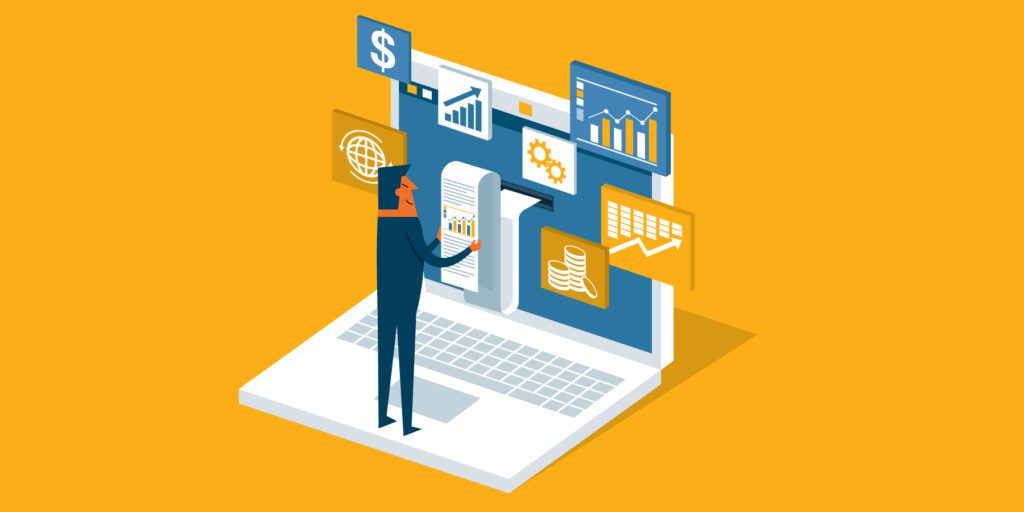1. Introduction
Freelancing offers independence and flexibility, but it also comes with unique financial challenges. As a freelancer, it’s crucial to have a solid financial plan in place to manage cash flow, save for taxes, plan for retirement, and protect your financial well-being. This article provides essential guidance for freelancers to navigate the world of finance and achieve long-term financial success.
2. Understanding the Financial Challenges Faced by Freelancers
Irregular Income
One of the significant challenges freelancers face is irregular income. Unlike traditional employees, freelancers often experience fluctuations in their earnings, making budgeting and cash flow management more complex.
Self-Employment Taxes
Freelancers are responsible for paying self-employment taxes, which include both the employer and employee portions of Social Security and Medicare taxes. Understanding tax obligations and planning accordingly is crucial to avoid surprises come tax season.
Lack of Employer Benefits
Freelancers don’t have access to employer-provided benefits such as health insurance, retirement plans, or paid time off. It’s essential to consider these factors and make appropriate arrangements to protect your financial and personal well-being.
3. Budgeting and Cash Flow Management
Creating a Freelancer Budget
Developing a comprehensive budget helps freelancers gain control over their finances. Start by identifying necessary expenses, such as housing, utilities, and healthcare, and allocate funds for savings, taxes, and business expenses.
Tracking Income and Expenses
Keep track of all income and expenses using accounting software or spreadsheets. This practice helps monitor cash flow, identify tax deductions, and ensure that you’re meeting your financial goals.
Managing Irregular Income
As a freelancer, it’s crucial to plan for months with lower income. Set aside a portion of each payment you receive in a separate savings account to create a buffer for leaner months. Consider using a “pay yourself a salary” approach to ensure consistency in your personal finances.
4. Setting Financial Goals
Short-Term and Long-Term Goals
Set both short-term and long-term financial goals. Short-term goals may include saving for emergencies or paying off debt, while long-term goals could involve retirement planning or purchasing a home. Define your goals and create a roadmap to achieve them.
Emergency Fund for Freelancers
Building an emergency fund is particularly crucial for freelancers. Aim to save at least three to six months’ worth of living expenses to provide a financial safety net during lean periods or unexpected events.
Retirement Planning
Without employer-sponsored retirement plans, freelancers need to take the initiative in planning for retirement. Explore retirement account options such as Individual Retirement Accounts (IRAs), Simplified Employee Pension (SEP) IRAs, or Solo 401(k) plans. Contribute regularly and take advantage of tax benefits to secure your future.
5. Tax Planning and Compliance
Understanding Self-Employment Taxes
Freelancers are subject to self-employment taxes, which include both the employer and employee portions of Social Security and Medicare taxes. Understand your tax obligations, consult a tax professional, and set aside a portion of your income for tax payments.
Estimated Tax Payments
As a freelancer, you may need to make estimated tax payments throughout the year to avoid penalties. Calculate your estimated tax liability and make quarterly payments to stay in compliance with the tax regulations.
Deductible Expenses for Freelancers
Identify deductible expenses related to your freelance business, such as home office expenses, equipment purchases, software subscriptions, travel expenses, and professional development costs. Keep thorough records and consult a tax professional to ensure you’re maximizing your deductions.
6. Insurance for Freelancers
Health Insurance Options
As a freelancer, explore health insurance options available to you. Consider individual health insurance plans, health savings accounts (HSAs), or joining professional organizations that offer group insurance plans.
Liability Insurance
Depending on the nature of your freelance work, liability insurance can provide protection against potential claims or lawsuits. Consult with an insurance professional to assess your specific needs and obtain appropriate coverage.
Disability and Life Insurance
Consider disability insurance to protect your income in case of injury or illness that prevents you from working. Life insurance may also be important if you have dependents or significant financial obligations. Assess your individual circumstances and consult with an insurance professional to determine the coverage that suits your needs.
7. Retirement Planning for Freelancers
Individual Retirement Accounts (IRAs)
IRAs are an excellent retirement savings vehicle for freelancers. Choose between Traditional IRAs or Roth IRAs based on your tax situation and contribution preferences. Contribute regularly and maximize your contributions within the annual limits.
Simplified Employee Pension (SEP) IRAs
SEP IRAs are designed for self-employed individuals and small business owners. Contributions are tax-deductible and can be more substantial than those of traditional IRAs. Explore SEP IRAs as an option to save more for retirement.
Solo 401(k) Plans
Solo 401(k) plans are available to self-employed individuals without employees. They allow for higher contribution limits compared to traditional IRAs or SEP IRAs. Solo 401(k) plans provide flexibility and potential tax advantages for freelancers planning for retirement.
8. Saving for Taxes and Business Expenses
Tax-Saving Strategies
Consult with a tax professional to explore tax-saving strategies for freelancers. These may include maximizing deductions, structuring your business appropriately, or taking advantage of tax credits specific to your industry or profession.
Separate Business Account
Maintain a separate business bank account to keep business and personal finances separate. This practice simplifies tax reporting, expense tracking, and ensures accurate record-keeping.
Planning for Business Expenses
Anticipate and plan for business-related expenses such as marketing, professional development, software subscriptions, or equipment upgrades. Budget for these expenses and set aside funds accordingly to avoid financial strain.
9. Building a Professional Network and Client Relationships
Marketing and Finding Clients
Develop a marketing strategy to promote your freelance services. Utilize online platforms, social media, and professional networks to showcase your skills and attract clients. Consistently seek new opportunities and expand your network.
Negotiating Rates and Contracts
Learn effective negotiation skills to secure fair compensation for your freelance work. Clearly define terms and expectations in written contracts to protect yourself and ensure a smooth working relationship with clients.
Maintaining Client Relationships
Nurture relationships with existing clients to foster loyalty and potentially gain repeat business or referrals. Provide exceptional service, communicate effectively, and deliver quality work to build a strong reputation within your industry.
10. Seeking Professional Advice
Accountants and Tax Professionals
Consult with an accountant or tax professional who specializes in working with freelancers. They can help you navigate complex tax regulations, optimize deductions, and ensure compliance with the ever-changing tax laws.
Financial Planners and Advisors
Consider working with a financial planner or advisor who understands the unique financial challenges faced by freelancers. They can assist in creating a comprehensive financial plan, retirement planning, and investment strategies tailored to your goals and circumstances.
Legal Professionals
Engage legal professionals to review contracts, intellectual property rights, or any legal concerns related to your freelance work. Protecting your interests legally is essential to avoid disputes and ensure a secure freelancing career.
11. Conclusion
Financial planning is vital for freelancers to achieve stability, manage cash flow, save for the future, and protect themselves against unforeseen circumstances. By implementing budgeting strategies, setting clear goals, complying with tax obligations, obtaining appropriate insurance coverage, planning for retirement, building professional networks, and seeking professional advice, freelancers can navigate the complexities of their finances and pave the way for long-term financial success.
12. FAQs
How much should I set aside for taxes as a freelancer?
It’s generally recommended to set aside 25-30% of your income for taxes as a freelancer. However, consult with a tax professional to determine the appropriate percentage based on your specific situation.
What are some common deductible expenses for freelancers?
Common deductible expenses for freelancers include home office expenses, equipment and software costs, professional development expenses, business travel, advertising and marketing expenses, insurance premiums, and legal and accounting fees. Keep detailed records and consult with a tax professional to ensure you’re claiming all eligible deductions.
How can I save for retirement without employer-sponsored plans?
As a freelancer, you have various retirement savings options, such as Individual Retirement Accounts (IRAs), Simplified Employee Pension (SEP) IRAs, or Solo 401(k) plans. Explore these retirement account options and contribute regularly to build a nest egg for your retirement.
Do I need liability insurance as a freelancer?
Liability insurance is highly recommended for freelancers, especially if your work involves potential risks or liabilities. It provides protection in case of claims or lawsuits related to your work. Consult with an insurance professional to assess your specific needs and obtain appropriate coverage.
How can I manage irregular income as a freelancer?
Managing irregular income requires careful budgeting and planning. Create a freelancer budget, set aside funds for leaner months, and consider maintaining an emergency fund to smooth out income fluctuations. Additionally, explore opportunities to diversify your income streams and secure retainer or long-term clients to create more stability in your earnings.
Related
Earn $2000 Weekly with Freelancing
Earn Online – 20 Opportunities




2 thoughts on “Financial Planning For Freelancers”